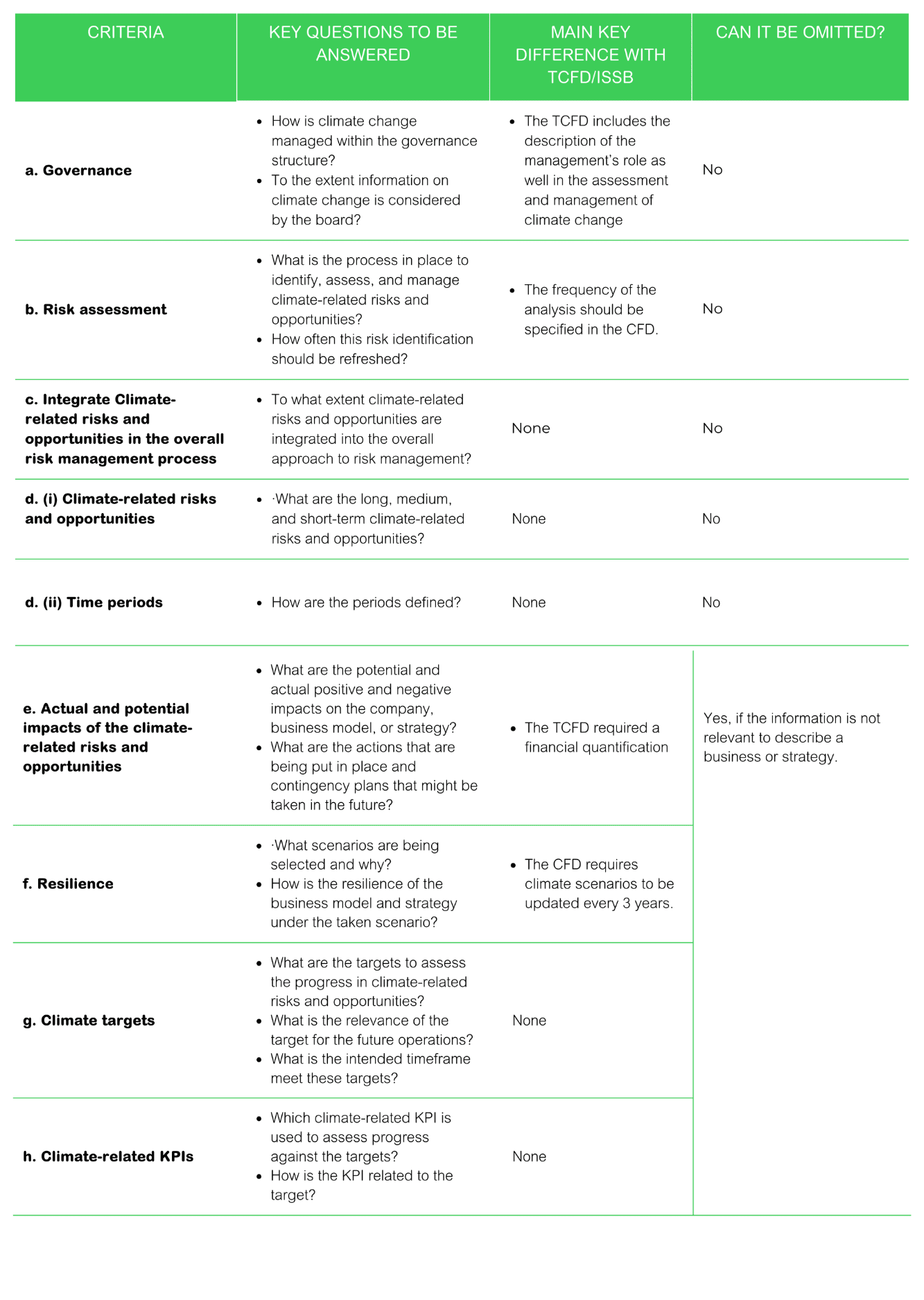Unpacking Regulations: CFD (Climate-Related Financial Disclosure)
 The effect of climate change poses both risks and opportunities in how organizations operate. Governments and international bodies have been developing climate disclosure guidance to guide organizations in assessing and reporting on the risks and opportunities associated with climate change. Climate disclosures have been developed regionally and internationally, creating differences between guidance. Therefore, it is important to understand what reporting is applicable and mandatory for organizations operating within the UK and Internationally.
The effect of climate change poses both risks and opportunities in how organizations operate. Governments and international bodies have been developing climate disclosure guidance to guide organizations in assessing and reporting on the risks and opportunities associated with climate change. Climate disclosures have been developed regionally and internationally, creating differences between guidance. Therefore, it is important to understand what reporting is applicable and mandatory for organizations operating within the UK and Internationally.
What is driving the requirement for climate-related financial disclosures?
- Climate-related events are increasing both in terms of size, and value: During 2023 there were 28 separate weather and climate disasters costing more than 1 billion USD, with damages totaling 92.9 billion USD[1].
- Investor's demand for disclosures: BlackRock puts climate change at the center of investment strategy, and specifically asks companies to disclose climate risks.
- Climate resilience is becoming core to strategy: Organizations commit to tackling climate change and economic recovery in the aftermath of the global COVID-19 crisis.
- Compliance is driving action: Governments globally are introducing laws to disclose climate risks and to address climate change.
The CFD
The UK Government's mandatory climate change reporting requirements for large UK private companies and limited liability partners (LLPs), known as the Climate-Related Financial Disclosure (CFD) regulation, came into force for the financial year starting after April 6th, 2022. The purpose of climate risk disclosure is to identify risks and opportunities of both the physical and transitional impacts, risks, and opportunities of climate change. The CFD aims to integrate climate risk and opportunities in the business governance, strategy, risk management, and key performance indices. Carrying out CFD can improve how investors view and assist the organization in complying with new regulation.
Which companies will be affected by CFD?
Companies that might disclose the climate-related risks and opportunities in their Annual Reports include:
- All UK companies with more than 500 employees and have either transferable securities admitted to trading on a UK-regulated market or are banking companies or insurance companies.
- UK registered companies with securities admitted to AIM with more than 500 employees.
- UK registered companies not included in the categories above, which have more than 500 employees and a turnover of more than £500m.
- Large LLPs, not traded or banking LLPs, have more than 500 employees and a turnover of more than £500m.
- Traded or banking LLPs that have more than 500 employees.
TCFD and ISSB development
Task force on Climate-Related Financial Disclosures first published in 2017, providing a four-pillar approach to reporting incorporating: governance, strategy, risk management, and metrics and risks. The TCFD was disbanded in 2024, to be replaced by the International Sustainability Standards Board (ISSB), which has fully incorporated the four component pillars and recommendations within TCFD. The requirement of the ISSB's latest climate disclosure reporting, published by the IFRS, is to disclose information covering all sustainability-related risks and opportunities that could “reasonably be expected to affect the entity’s prospects and cash flows, its access to finance or cost of capital over the short, medium or long term”.
What does CFD involve?
The mandatory disclosure, aligned with the previous TCFD, will require companies to disclose 9 climate-related criteria.
.

How can Schneider Electric support you on your climate risk disclosure journey?
Are you an organization that needs to disclose to CFD? Schneider Electric has defined a strategy for approaching climate-related financial disclosures depending on your organization's maturity and where you are on your journey. Our group of experts will help you navigate the localized difference in reporting, so you can be assured that you are reporting climate-related risks at the right organizational level.
We can assist you in understanding your organization's level of readiness and maturity in reporting to CFD. We can provide you with concrete actions to improve your organization’s maturity and readiness when it comes to reporting, giving you the confidence to meet current and future climate-related financial disclosures.
We can take the initial assessment further and carry out initial drafting of the disclosure to the relevant climate risk disclosure framework. This will provide you with a framework on which to develop further into a full climate-related financial disclosure document.
We are also able to provide you with our full disclosure service. This service aims to provide clients with a tailored process providing a full climate risk disclosure report, meeting the relevant framework requirements. This service includes a climate risk and related foundation course, a risk and opportunities assessment, scenario analysis, and disclosure report.
Ready to get started? Schedule an appointment with one of our CFD compliance experts.
Contributor:
